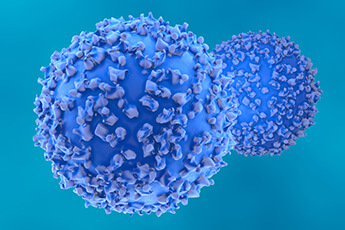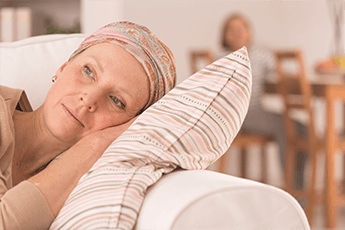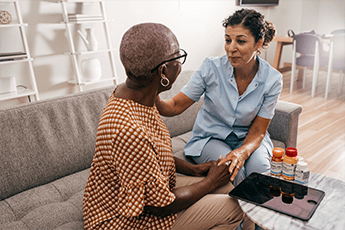Managing kidney cancer treatment side effects
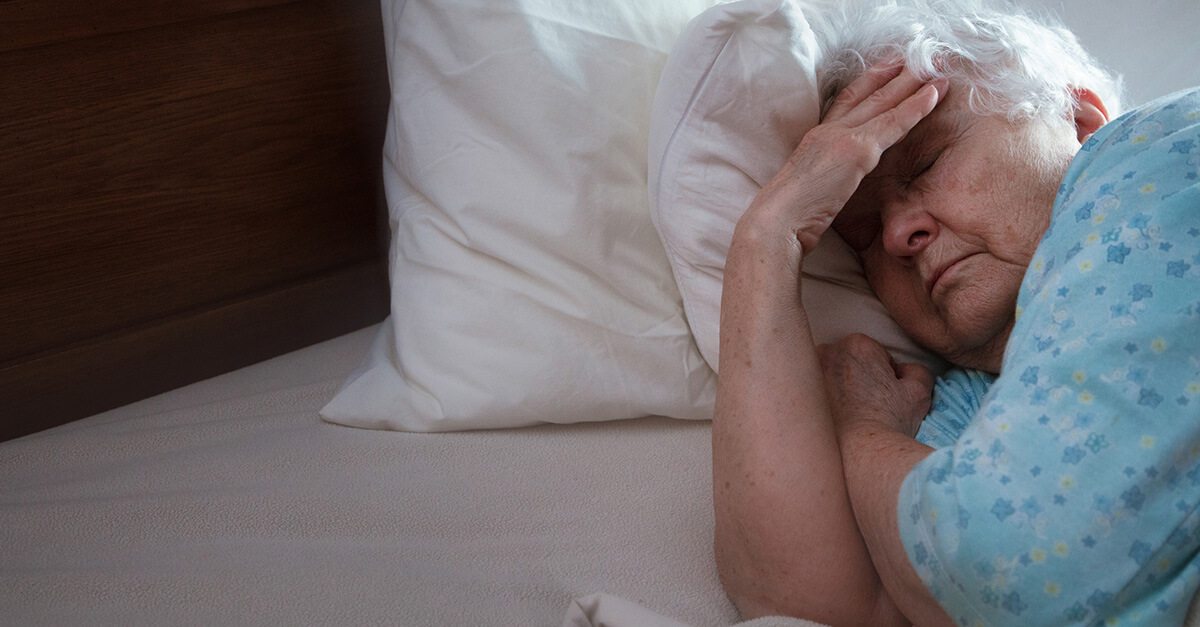
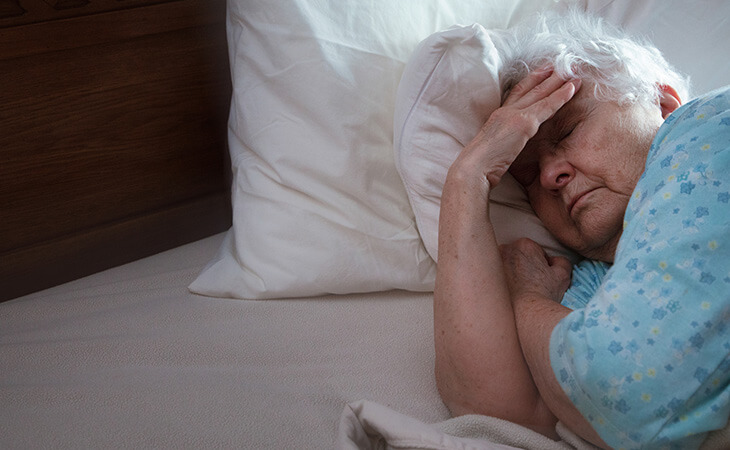
Finding out that you have kidney cancer can be unsettling. Fortunately, this cancer responds well to treatments. There’s a 90% survival rate for people diagnosed with early stage kidney cancer. More than 2 in 3 people are in this stage when they get a diagnosis, which means the prognosis is favorable.
From the community: “I had my first treatment of Keytruda which is an immunotherap two weeks ago and have a rash and am very fatigued. I wish you the best and hope you are able to continue with your immunotherapy without any dangerous side effects.” – Inspire member
Managing the side effects of kidney cancer treatments
While kidney cancer treatments can be lifesavers, they also cause side effects. You may experience treatment side effects while getting the treatment or months or years after treatment ends. Here’s a look at some of the more common kidney cancer treatment side effects and how to manage them.
diarrhea
fatigue
loss of appetite and weight loss
muscle aches and joint pain
skin rashes and changes
Diarrhea
People who take immunotherapy drugs for kidney cancer, as well as those who get chemotherapy for metastatic kidney cancer, may experience abdominal pain and chronic diarrhea. Some people have the opposite problem and become constipated.
These steps can help stop or manage diarrhea:
Choose easy-to-digest foods like bananas, applesauce, rice, and bread.
Cut back on high-fat foods, spicy foods, juice, and milk and dairy products.
Don’t use stool softeners, laxatives, or metoclopramide, a medication doctors sometimes prescribe to treat the side effect of nausea and vomiting.
Eat smaller meals throughout the day.
Reduce your intake of caffeinated and alcoholic beverages.
From the community: “I had my right kidney removed... and it metastasized to my lungs and pancreas in 2017. I entered into a clinical trial using a combination of immunotherapy drugs and experienced fatigue, some itchiness, mild gastrointestinal issues and a little bit of arthritis. All were very manageable and I was able to keep working and go about my normal routines. I am currently in remission.” – Inspire member
Fatigue
As many as 8 in 10 people with cancer experience some level of fatigue. This extreme exhaustion can be both a disease symptom and a side effect of immunotherapy, targeted therapy, radiation therapy, and chemotherapy. Cancer-related fatigue doesn’t go away with increased or improved sleep. It can affect your memory, concentration, mood, and energy levels.
It may surprise you to know that exercise (or any type of movement) is one of the best ways to counteract kidney cancer-related fatigue. Walking, swimming, cycling, or other types of physical activity are energizing. Plus, they help you manage stress and improve your mood. For an added boost, go on regular walks outdoors with a friend. You get to socialize while exercising and breathing in the fresh air. Mindfulness-based practices like yoga and meditation can also ease fatigue.
Muscle aches and joint pain
You may develop muscle aches and joint pain after receiving immunotherapy drugs, targeted therapy, or chemotherapy. These aches and pains aren’t something you have to live with. But you shouldn’t take over-the-counter pain relievers without first checking with your doctor. Certain drugs like acetaminophen, ibuprofen, and naproxen sodium can harm kidneys already damaged by cancer or chronic kidney disease, putting you at risk for kidney failure.
Your doctor can recommend pain relievers that are safe to take. You may also benefit from:
acupuncture
breathing or meditation exercises
corticosteroids
hot and cold compresses
massage
muscle relaxants
physical activity (exercise)
physical therapy
Skin rashes and changes
Certain immunotherapies and targeted therapies can cause skin rashes, itchy skin, blisters or peeling skin, as well as hair loss. You should contact your doctor if you develop skin problems. Some skin reactions increase your risk of infections and scarring.
You can ease these symptoms or help to prevent them by:
applying a cream-based, hypoallergenic moisturizer after taking a warm (not hot) shower (not a bath)
avoiding acne treatment products
trying not to scratch at skin and using anti-itch creams
using mild, fragrance-free bath soaps and laundry detergent
wearing sunscreen with a sun protection factor (SPF) of at least 15 and staying out of the sun as much as possible
From the community: “I have had 5 treatments of KEYTRUDA vary minimal side effects mostly I’m just tiered and sore but nothing that has changed my life dramatically I still work long hours and am able to complete my normal tasks at home it just takes a little more self motivation to get it done.” – Inspire member
Weight loss
A combination of treatment side effects like abdominal pain, bowel changes, change of taste, mouth sores, and nausea and vomiting can contribute to unintended weight loss. Proper nutrition is important for maintaining your strength as you undergo cancer treatments. Malnutrition and weight loss can worsen fatigue and increase your risk of infections.
Depending on the cause of the weight loss, your doctor may prescribe medications to ease nausea and vomiting or soothe mouth sores. These tips can also ensure you get the nutrients and calories your body needs:
add sauces, cheese, and butter to foods to increase their fat content
consume small high-calorie, high-protein meals and snacks throughout the day
eat foods that are cold or at room temperature to minimize their odors
follow a kidney-friendly diet
seek the help of a dietitian
take a 20-minute walk before meals to stimulate your appetite
use spices and condiments to add flavor to foods
The role of palliative care in managing treatment side effects
People with chronic conditions like kidney cancer can benefit from the services of a palliative care specialist. These experts provide supportive services that help you manage disease symptoms and treatment side effects. Unlike hospice care, which is for the end-of-life, palliative care focuses on helping people live better with kidney cancer. Your doctor or cancer center can help you find a palliative care specialist in your area.
Sources
Immune checkpoint inhibitors and their side effects. American Cancer Society. March 2022.
Immunotherapy for kidney cancer. American Cancer Society. November 2021.
Survival rates for kidney cancer. American Cancer Society. March 2022.
What is fatigue or weakness? American Cancer Society. February 2020.
Appetite loss. American Society of Clinical Oncology. April 2020.
Diarrhea. American Society of Clinical Oncology. December 2020.
Fatigue. American Society of Clinical Oncology. April 2020.
Joint pain. American Society of Clinical Oncology. July 2021.
Kidney cancer: Coping with treatment. American Society of Clinical Oncology. October 2021.
Markham MJ. 8 ways to cope with cancer-related fatigue. American Society of Clinical Oncology. January 10, 2017.
Muscle aches. American Society of Clinical Oncology. July 2021.
Side effects of immunotherapy. American Society of Clinical Oncology. May 2019.
Skin reactions to targeted therapy and immunotherapy. American Society of Clinical Oncology. November 2021.
Weight loss. American Society of Clinical Oncology. April 2020.
Cancer stat facts: Kidney and renal pelvis cancer. National Cancer Institute.
Pain medicines (analgesics). National Kidney Foundation.
Disclaimer
Member comments are lightly edited for length and to remove identifying information but are otherwise reproduced as they appear in the community as part of public posts.
This content is for general informational purposes only and does not necessarily reflect the views and opinions of any organization or individual. The content should not be used as a substitute for professional medical advice, diagnosis, or treatment. Please consult your healthcare provider about any questions you may have regarding a medical condition.


